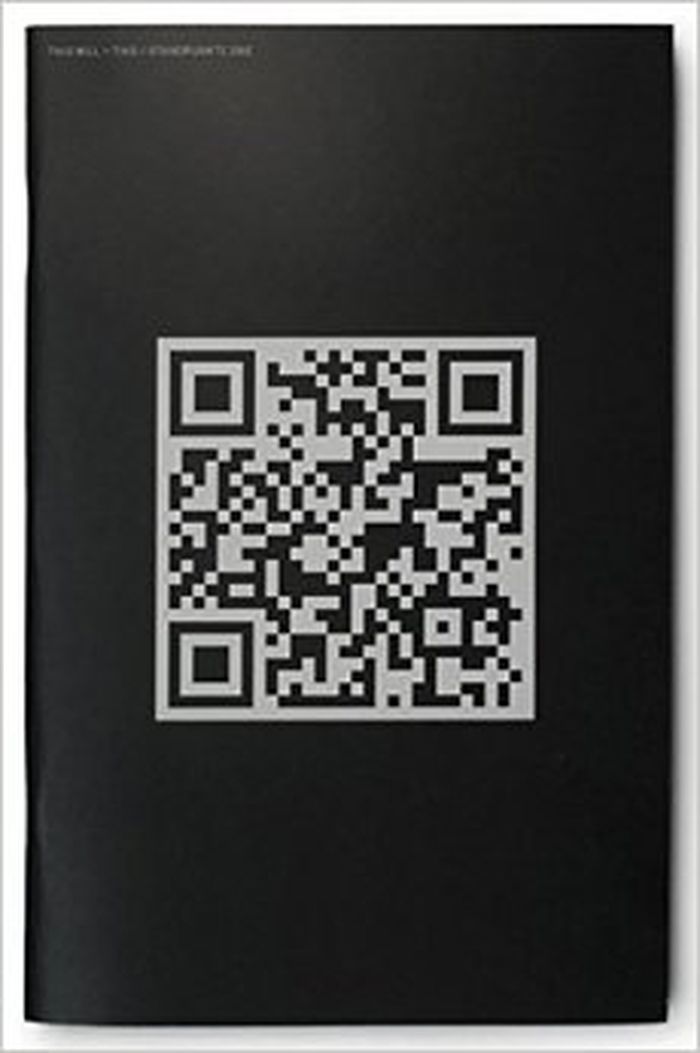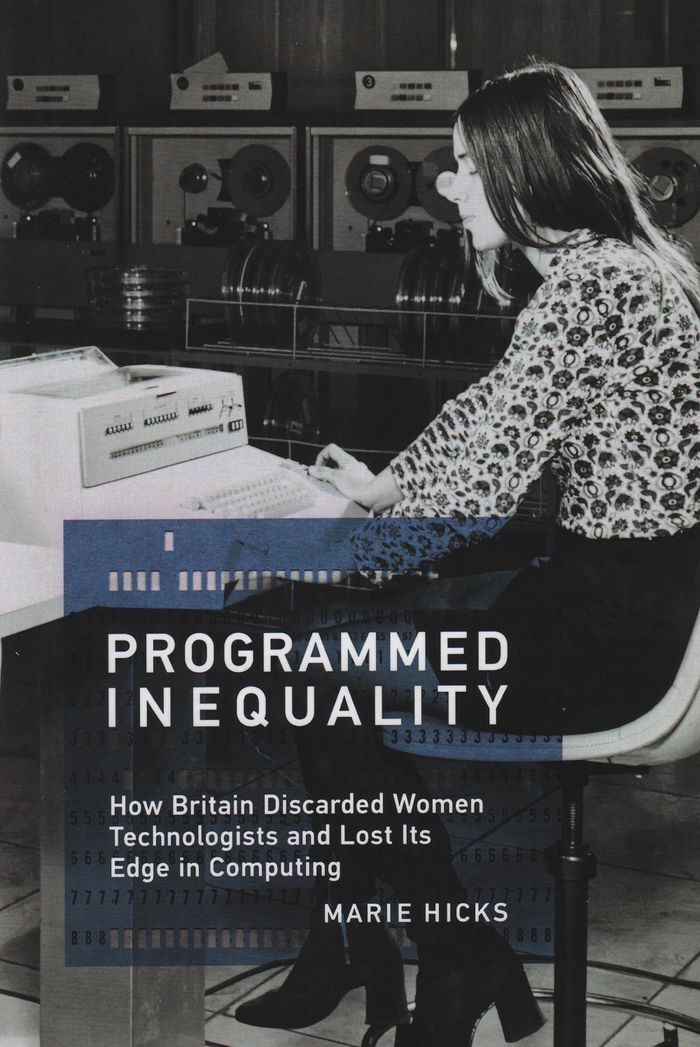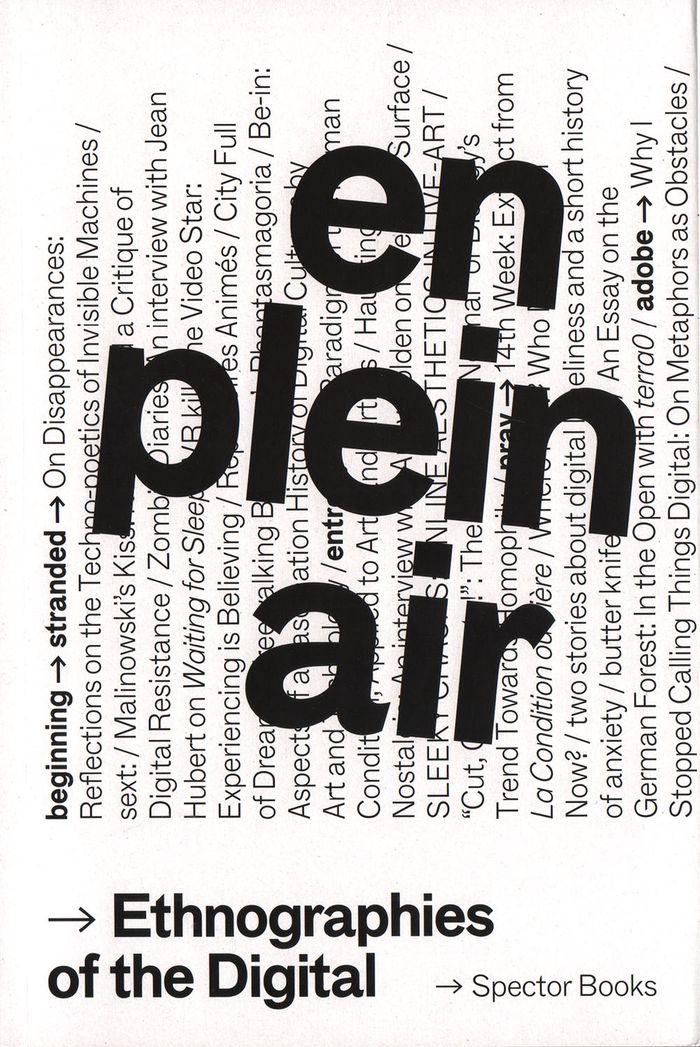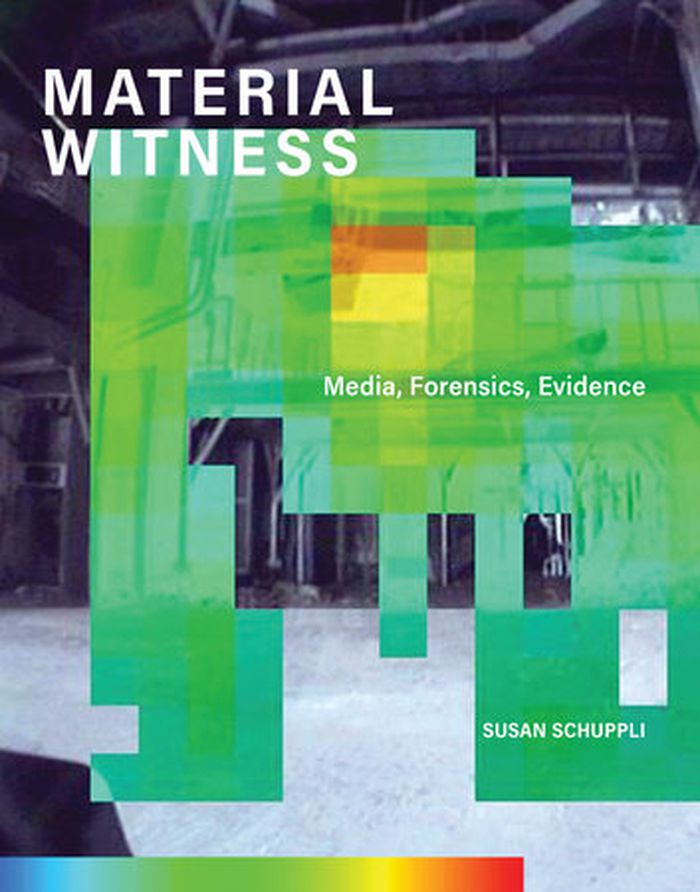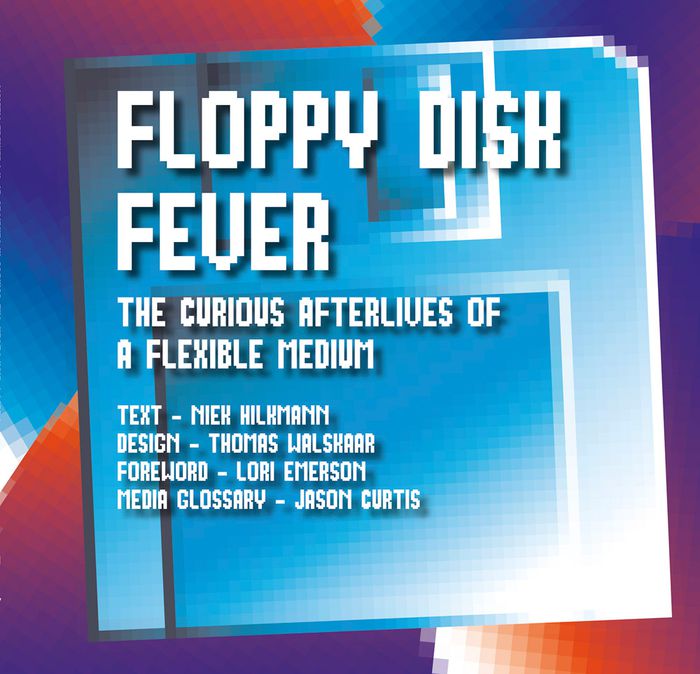$18.95
(available to order)
Summary:
En étudiant des opérations et des systèmes techniques potentiellement ouverts à la recherche, cet essai interroge le rapport du design aux «humanités numériques» (digital humanities) qui se développent depuis le milieu des années 2000. En quoi les environnements numériques contemporains actualisent-ils les modes de production et de transmission des savoirs ? Quelle est la(...)
Design et humanités numériques
Actions:
Price:
$18.95
(available to order)
Summary:
En étudiant des opérations et des systèmes techniques potentiellement ouverts à la recherche, cet essai interroge le rapport du design aux «humanités numériques» (digital humanities) qui se développent depuis le milieu des années 2000. En quoi les environnements numériques contemporains actualisent-ils les modes de production et de transmission des savoirs ? Quelle est la place des designers dans des projets relevant des sciences humaines et sociales ? De la modélisation des connaissances à l’injonction à l’innovation et à la créativité, du design d’expérience aux conditionnements techniques, de l’étude de la rationalité numérique aux reconfigurations de la subjectivité, ce parcours réflexif montre que l’industrie des programmes, chaque jour un peu plus puissante, n’a pas épuisé tout le champ des possibles. En interrogeant et en révélant l’environnement technique dans lequel les humanités numériques opèrent, le travail des techniques numériques par le design montre ainsi qu’il reste de la place pour d’autres modulations, d’autres sensibilités, d’autres cultures.
Archive, library and the digital
This will - this
$20.00
(available in store)
Summary:
The 2D bar code is disturbing and exciting because it is legible at an aesthetic level while remaining illegible at the level of content. What can we make of its linkages between logistics, cryptography, and space?
Archive, library and the digital
January 2009
This will - this
Actions:
Price:
$20.00
(available in store)
Summary:
The 2D bar code is disturbing and exciting because it is legible at an aesthetic level while remaining illegible at the level of content. What can we make of its linkages between logistics, cryptography, and space?
Archive, library and the digital
$57.50
(available to order)
Summary:
The book "Writingplace: investigations in architecture and literature" marks a step forward in an emerging debate on literary means in architecture. It offers a series of reflections on written language as a crucial element of architecture culture, and on the potential of using literary methods in architectural and urban research, education and design. For everyone(...)
Writingplace: investigations in architecture and literature
Actions:
Price:
$57.50
(available to order)
Summary:
The book "Writingplace: investigations in architecture and literature" marks a step forward in an emerging debate on literary means in architecture. It offers a series of reflections on written language as a crucial element of architecture culture, and on the potential of using literary methods in architectural and urban research, education and design. For everyone interested in the transdisciplinary encounters between architecture and literature, the book offers both theoretical contributions that address notions such as narrative and literary imagination, and contemporary explorations regarding the operability of literary approaches. Writingplace includes contributions by experts in the fi eld such as Bart Keunen, Alberto Pérez Gómez, Wim van den Bergh, Klaske Havik, Katja Grillner and Wim Cuyvers.
Archive, library and the digital
Programmed inequality: how Britain discarded women technologists and lost its edge in computing
$51.95
(available to order)
Summary:
In 1944, Britain led the world in electronic computing. By 1974, the British computer industry was all but extinct. What happened in the intervening thirty years holds lessons for all postindustrial superpowers. As Britain struggled to use technology to retain its global power, the nation’s inability to manage its technical labor force hobbled its transition into the(...)
Programmed inequality: how Britain discarded women technologists and lost its edge in computing
Actions:
Price:
$51.95
(available to order)
Summary:
In 1944, Britain led the world in electronic computing. By 1974, the British computer industry was all but extinct. What happened in the intervening thirty years holds lessons for all postindustrial superpowers. As Britain struggled to use technology to retain its global power, the nation’s inability to manage its technical labor force hobbled its transition into the information age. In "Programmed inequality", Marie Hicks explores the story of labor feminization and gendered technocracy that undercut British efforts to computerize. That failure sprang from the government’s systematic neglect of its largest trained technical workforce simply because they were women. Women were a hidden engine of growth in high technology from World War II to the 1960s. As computing experienced a gender flip, becoming male-identified in the 1960s and 1970s, labor problems grew into structural ones and gender discrimination caused the nation’s largest computer user—the civil service and sprawling public sector—to make decisions that were disastrous for the British computer industry and the nation as a whole.
Archive, library and the digital
$34.95
(available to order)
Summary:
En plein air — painting outdoors — traditionally describes the impressionist revolt against the studio. This book compiles texts by media scholars, scientists, artists, anthropologists and theorists exploring the concept of en plein air in terms of the digital, a realm with ever-evolving boundaries.
En plein air: ethnographies of the digital
Actions:
Price:
$34.95
(available to order)
Summary:
En plein air — painting outdoors — traditionally describes the impressionist revolt against the studio. This book compiles texts by media scholars, scientists, artists, anthropologists and theorists exploring the concept of en plein air in terms of the digital, a realm with ever-evolving boundaries.
Archive, library and the digital
$54.00
(available to order)
Summary:
In this book, Susan Schuppli introduces a new operative concept: material witness, an exploration of the evidential role of matter as both registering external events and exposing the practices and procedures that enable matter to bear witness. Organized in the format of a trial, 'Material witness' moves through a series of cases that provide insight into the ways in(...)
Material witness: Media, forensics, evidence
Actions:
Price:
$54.00
(available to order)
Summary:
In this book, Susan Schuppli introduces a new operative concept: material witness, an exploration of the evidential role of matter as both registering external events and exposing the practices and procedures that enable matter to bear witness. Organized in the format of a trial, 'Material witness' moves through a series of cases that provide insight into the ways in which materials become contested agents of dispute around which stake holders gather.
Archive, library and the digital
$39.99
(available to order)
Summary:
To live in data in the twenty-first century is to be incessantly extracted from, classified and categorized, statisti-fied, sold, and surveilled. Data - our data - is mined and processed for profit, power, and political gain. In Living in Data, Thorp asks a crucial question of our time: How do we stop passively inhabiting data, and instead become active citizens of it?
Living in data: a citizen's guide to a better information future
Actions:
Price:
$39.99
(available to order)
Summary:
To live in data in the twenty-first century is to be incessantly extracted from, classified and categorized, statisti-fied, sold, and surveilled. Data - our data - is mined and processed for profit, power, and political gain. In Living in Data, Thorp asks a crucial question of our time: How do we stop passively inhabiting data, and instead become active citizens of it?
Archive, library and the digital
$25.00
(available to order)
Summary:
This volume explores the curious afterlives of the floppy disk in the 21st century through the work of those involved with the medium today. The book reflects on notions of obsolescence, media preservation and nostalgia, and challenges these by showing the endurance and versatility of this familiar piece of technology. From floppy filmmakers to floppy painters and beyond:(...)
Archive, library and the digital
November 2022
Floppy disk fever: The curious afterlives of a flexible medium
Actions:
Price:
$25.00
(available to order)
Summary:
This volume explores the curious afterlives of the floppy disk in the 21st century through the work of those involved with the medium today. The book reflects on notions of obsolescence, media preservation and nostalgia, and challenges these by showing the endurance and versatility of this familiar piece of technology. From floppy filmmakers to floppy painters and beyond: what drives people to continue working with the medium that is typically deemed obsolete? What challenges and affordances does it provide? And what does the future hold in store for the familiar black square? By looking at the current presence of past technology we can assess our present-day situation and speculate on the future developments of our media landscape. After all, the technology of the past is also part of our future. This volume features interviews with key players in the contemporary floppy-disk world, including not only artists and filmmakers using floppy disks in their practice but also businessmen, archivists and museum proprietors working to preserve the medium.
Archive, library and the digital
Le livre et la bibliothèque: La quête des savoirs et de la culture, mélanges offerts à Marcel Laje
$45.00
(available in store)
Summary:
Cet ouvrage présente le livre et la bibliothèque comme objet et lieu privilégiés où s’incarne la quête des savoirs et de la culture. Qu’on pense en mode analogique ou numérique, le livre et la bibliothèque ne sont-ils pas les meilleurs moyens de répondre au besoin essentiel que nous avons tous de connaître, de savoir, de nous développer?? Le livre comme support de la(...)
Archive, library and the digital
February 2023
Le livre et la bibliothèque: La quête des savoirs et de la culture, mélanges offerts à Marcel Laje
Actions:
Price:
$45.00
(available in store)
Summary:
Cet ouvrage présente le livre et la bibliothèque comme objet et lieu privilégiés où s’incarne la quête des savoirs et de la culture. Qu’on pense en mode analogique ou numérique, le livre et la bibliothèque ne sont-ils pas les meilleurs moyens de répondre au besoin essentiel que nous avons tous de connaître, de savoir, de nous développer?? Le livre comme support de la connaissance et la bibliothèque comme milieu de recherche du savoir ont fourni de tout temps une contribution importante à l’apprentissage, à la progression, bref à l’évolution de l’être humain. L’ouvrage que nous proposons aborde ce vaste terrain de réflexion dans une approche nationale et internationale avec un regard historique, actuel et tourné vers l’avenir.
Archive, library and the digital
$47.00
(available to order)
Summary:
The only way to handle data responsibly, says Melanie Feinberg in this incisive work, is to take into account its human character. Though the data she discusses may seem familiar, close scrutiny shows it to be ambiguous, complicated, and uncertain: unruly. Drawing on the tools of information science, she uses everyday events to demonstrate a practical, critical, and(...)
Everyday adventures with unruly data
Actions:
Price:
$47.00
(available to order)
Summary:
The only way to handle data responsibly, says Melanie Feinberg in this incisive work, is to take into account its human character. Though the data she discusses may seem familiar, close scrutiny shows it to be ambiguous, complicated, and uncertain: unruly. Drawing on the tools of information science, she uses everyday events to demonstrate a practical, critical, and generative mode of thinking about data: its creation, management, aggregation, and use. As she reflects on the implications of commonplace events, Feinberg explicates fundamental concepts of data that reveal the many tiny design decisions—which may not even seem like design at all—that shape how data comes to be. Through the themes of serendipity, objectivity, equivalence, interoperability, taxonomy, labels, and locality, she illuminates the surprisingly pervasive role of data in our daily thoughts and lives.
Archive, library and the digital

